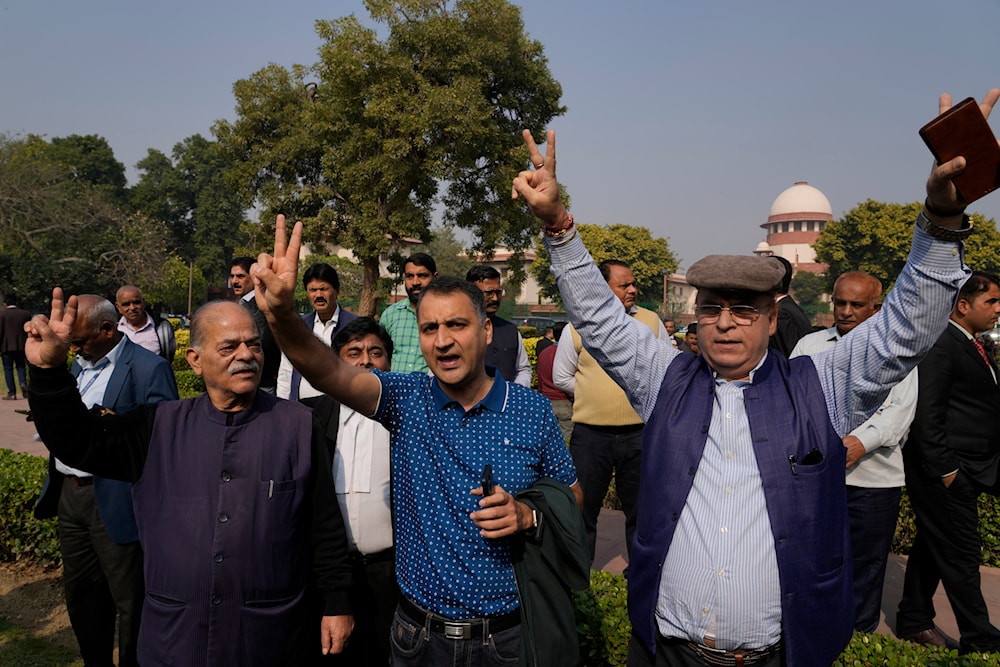India Supreme Court rules Jammu, Kashmir autonomy revocation lawful
The verdict serves as a win for the government of the Hindu nationalist Bharatiya Janata Party (BJP), as it has constantly vowed to revoke Article 370, which gave Kashmiris special rights.
-

Kashmiri Hindus locally known as Pandits show victory signs in New Delhi, India, Monday, Dec. 11, 2023 (AP)
The Supreme Court of India has officially ruled that when the government revoked the autonomy of the state of Jammu and Kashmir, it acted lawfully.
The chief justice of India, D Y Chandrachud, claimed the government did not overreach its powers, adding that Article 370 was only intended to be “temporary” after the region acceded to India following independence and was thus invalid in current times.
To put this into context, Article 370 (which gave special rights for Jammu and Kashmir outside the Indian constitution for 70 years) was revoked by Narendra Modi in August 2019 without consulting with the Kashmiri people.
Before the verdict, Kashmir’s political leaders claimed to be placed under de facto house arrest with their homes' gates chained shut, and movement restricted.
Read more: Muslims in India and Kashmir face systemic violence: Welcome Ramadan
The judges in the verdict described article 370 as “asymmetric federalism” after arguing that the Indian constitution applies fully to Jammu and Kashmir.
“Jammu and Kashmir did not retain any sovereignty after accession to India,” said Chandrachud.
'Dignity of life'
The Muslim-majority region of Kashmir pre-dates India’s 1947 independence which proved a contest between India and Pakistan.
Article 370 was passed initially as a temporary measure after Jammu and Kashmir became part of the Indian Union, giving Kashmiris their constitution and flag.
The verdict serves as a win for the government of the Hindu nationalist Bharatiya Janata party (BJP), as it has constantly vowed to revoke Article 370.
Mehbooba Mufti, the former chief minister who was deposed from power, said revoking it was “unjust, illegal and unconstitutional” and justifying it was “no less than news of a death sentence not only for Jammu and Kashmir but also for the idea of India”.
“No verdict is final, even if it is from the Supreme Court,” she said, adding: “This is a political fight which has been going on for the past several decades. Our people have made huge sacrifices to achieve dignity of life and we will not leave it unfulfilled.”
New Delhi has consistently reaffirmed that Jammu and Kashmir and Ladakh are and will remain, an integral and inseparable part of India.

 2 Min Read
2 Min Read








